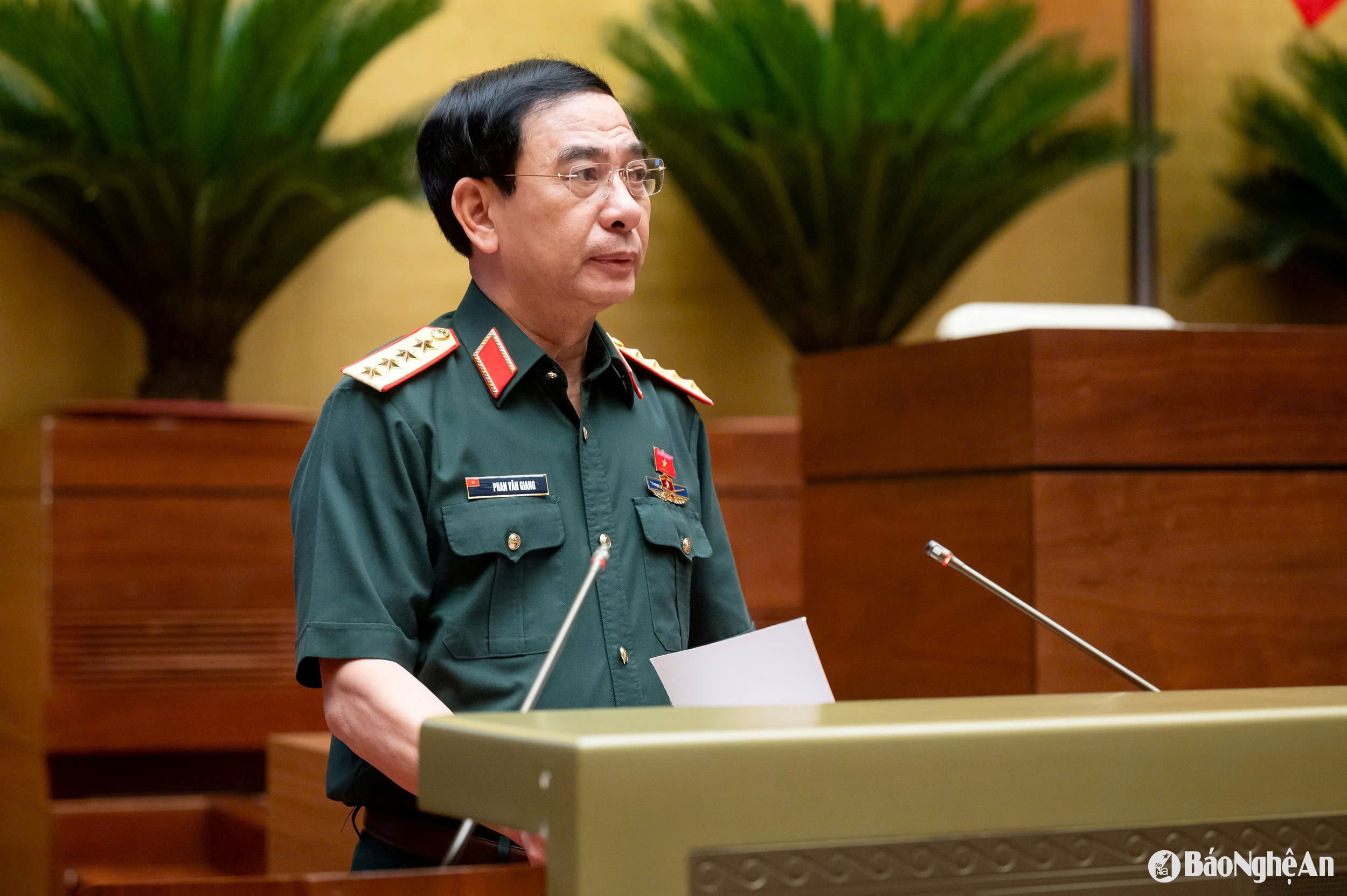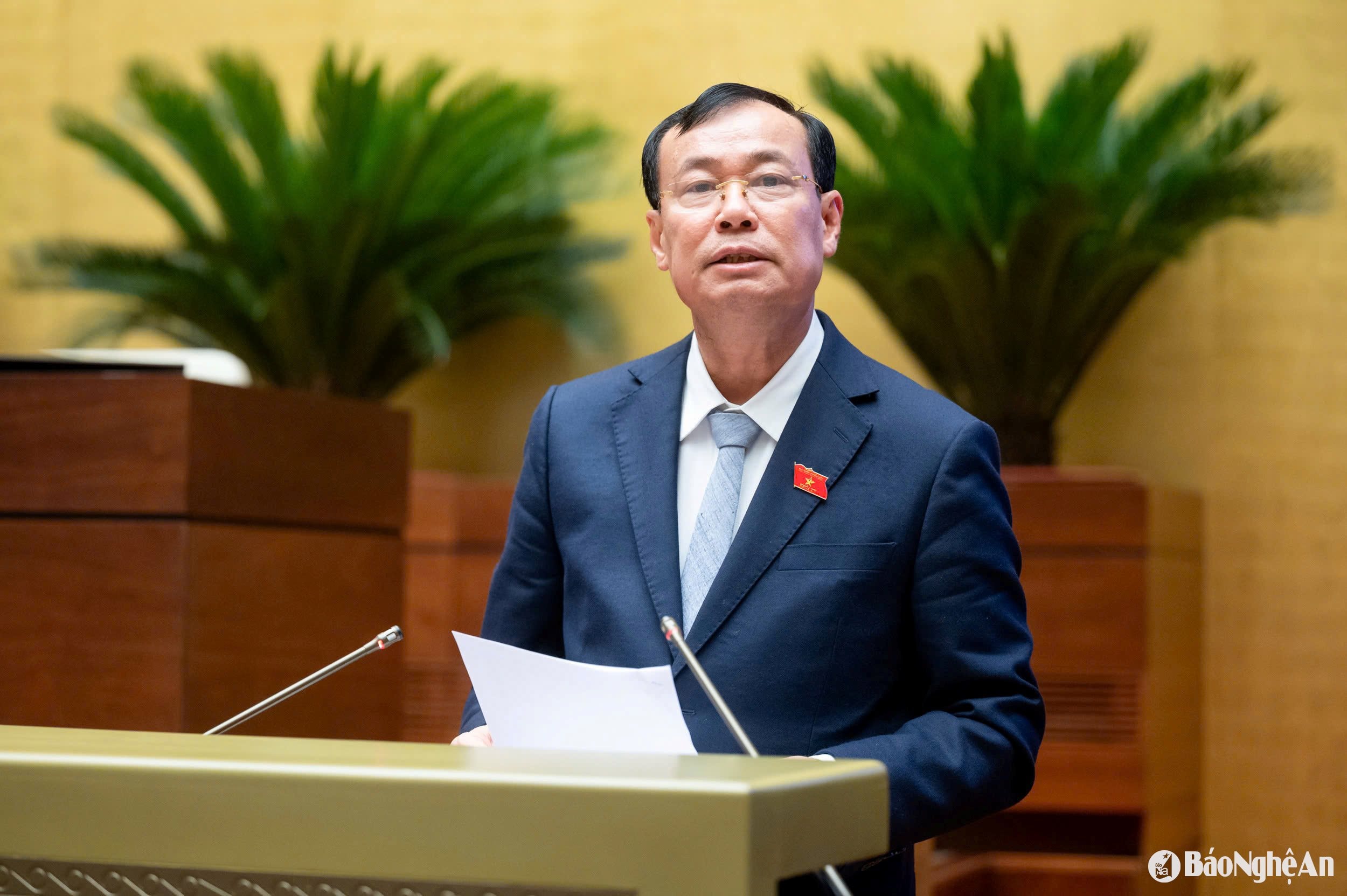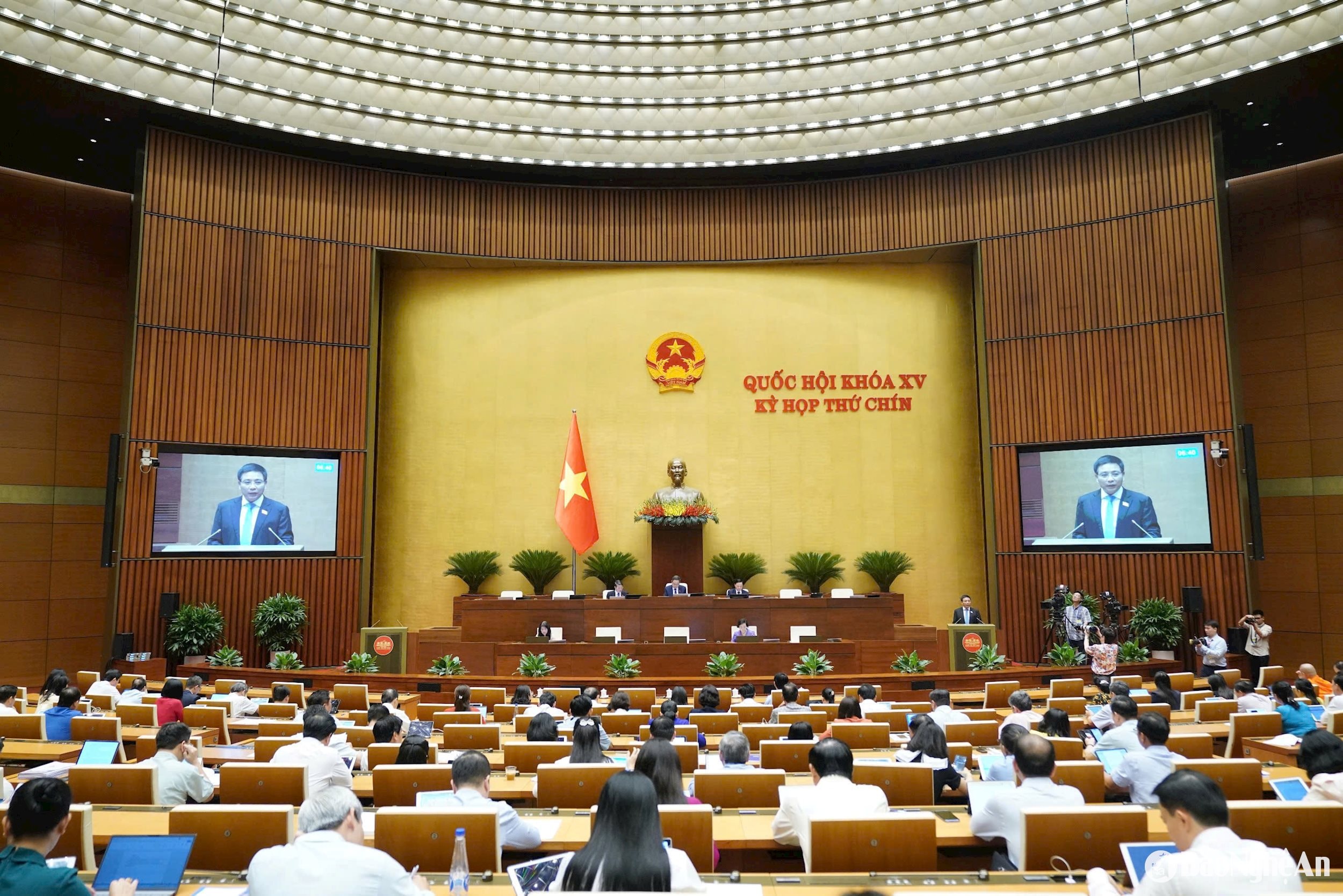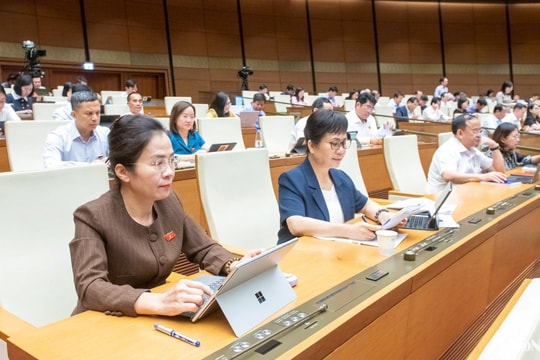Submit to the National Assembly the Law on Participation in United Nations Peacekeeping Forces
On the afternoon of May 14, the National Assembly heard the Government's presentation on the draft Law on Participation in United Nations Peacekeeping Forces.
.jpg)
More than 1,000 officers have been dispatched to participate in peacekeeping.
Since 2014, Vietnam has sent more than 1,000 officers and employees of the Ministry of National Defense and the Ministry of Public Security to perform United Nations (UN) peacekeeping missions as units and individuals.
Vietnam's participating forces have excellently completed their tasks, recognized by the Party, State and People, and highly appreciated by the United Nations and the international community.
Participating in the UN peacekeeping force has contributed to strengthening international integration, demonstrating Vietnam as a responsible member of the international community, and enhancing Vietnam's position and prestige in the international arena.

The Draft Law on Participation in the United Nations Peacekeeping Force consists of 4 chapters and 26 articles, aiming to institutionalize the Party's policies and guidelines, stipulated in the 2013 Constitution, perfect the legal corridor, ensure consistency in the legal system, in accordance with the United Nations Charter and international treaties to which the Socialist Republic of Vietnam is a member.
Regarding the scope of regulation, the Law stipulates principles, subjects, forms, and fields; building and deploying forces; ensuring resources, regimes, and policies; international cooperation on United Nations peacekeeping and the responsibilities of agencies and organizations in participating in UN peacekeeping.
.jpg)
The subjects of application of the Law include:
- Officers, professional soldiers, defense workers and civil servants, non-commissioned officers, soldiers and units under the Ministry of National Defense; Professional and technical officers, non-commissioned officers, police workers, soldiers and units under the Ministry of Public Security assigned to participate in the United Nations peacekeeping force;
- State officials, civil servants and public employees assigned to participate in the United Nations peacekeeping force.
- Agencies, units, organizations and individuals involved in participating in the UN peacekeeping force.
Helaborate draft law documents, quality assurance
Through examination, the National Assembly's Committee on National Defense, Security and Foreign Affairs unanimously agreed that the promulgation of the Law on Participation in United Nations Peacekeeping Forces is necessary to perfect the legal system on Vietnam's peacekeeping activities within the framework of the United Nations.
According to the inspection agency, the participation of the Vietnam People's Armed Forces (VPA) in the UN peacekeeping operations not only demonstrates its commitment and responsibility to the international community, but is also an opportunity to expand international cooperation, exchange experiences, and approach new issues in the military, civil, security and order fields on a global scale.

The diverse and complex operating environment in terms of geopolitics, economics, society and culture will help improve the organizational and command capacity and task performance skills of the People's Armed Forces, thereby contributing to strengthening the strength to protect the independence, sovereignty and territorial integrity of the Fatherland.
In terms of content, the draft law is assessed to fundamentally institutionalize the Party's guidelines and policies, ensuring compliance with the Constitution and consistency within the current legal system.
However, the Committee on National Defense, Security and Foreign Affairs requested the drafting agency to continue reviewing and clarifying a number of issues on political, legal and practical grounds. Specifically, the regulation on civilian subjects including cadres, civil servants and state employees assigned to participate in the UN peacekeeping force.
At the same time, it is necessary to clearly define the role of the President in "commanding the people's armed forces" in sending civilian forces to participate in peacekeeping activities, in order to ensure constitutionality and consistency in legal regulations.
Regarding some major contents in the draft, the Committee requested the drafting agency to study and absorb comments to make them more rigorous and feasible; specifically, the regulations on forces participating in UN peacekeeping activities; on force selection; the mechanism of direction, management, command and operation; Article 21 on the process of rotating and replacing peacekeeping forces.
Regarding regimes and policies, the Committee on National Defense, Security and Foreign Affairs said: some opinions suggested studying and supplementing regulations related to the regime for individuals whose health is affected or who get sick after completing a peacekeeping mission, in cases where the cause is determined to be due to the performance of the mission. In addition, it is necessary to consider regulations on preferential and incentive policies for female forces participating in UN peacekeeping activities, in order to ensure humanity, gender equality and motivation to contribute.
In addition, to serve foreign affairs activities in the field of peacekeeping, it is necessary to supplement regulations on regimes and policies for forces responsible for training, coaching, and managing peacekeeping forces under the Ministry of National Defense, the Ministry of Public Security, and agencies, organizations, and localities with forces participating in these activities.

The Committee on National Defense, Security and Foreign Affairs assessed: The Government has seriously and promptly implemented the conclusions of the National Assembly Standing Committee, prepared elaborate draft documents, and ensured quality. Therefore, submitting the draft Law on Participation in UN Peacekeeping Forces to the National Assembly for consideration and approval at the 9th Session of the 15th National Assembly has a solid foundation and is in line with practical requirements.
On the same afternoon, the National Assembly listened to the presentation and report on the review of the draft Law on State Budget (amended) and discussed in the hall the draft Law on Cadres and Civil Servants (amended).

.jpg)

.jpg)
